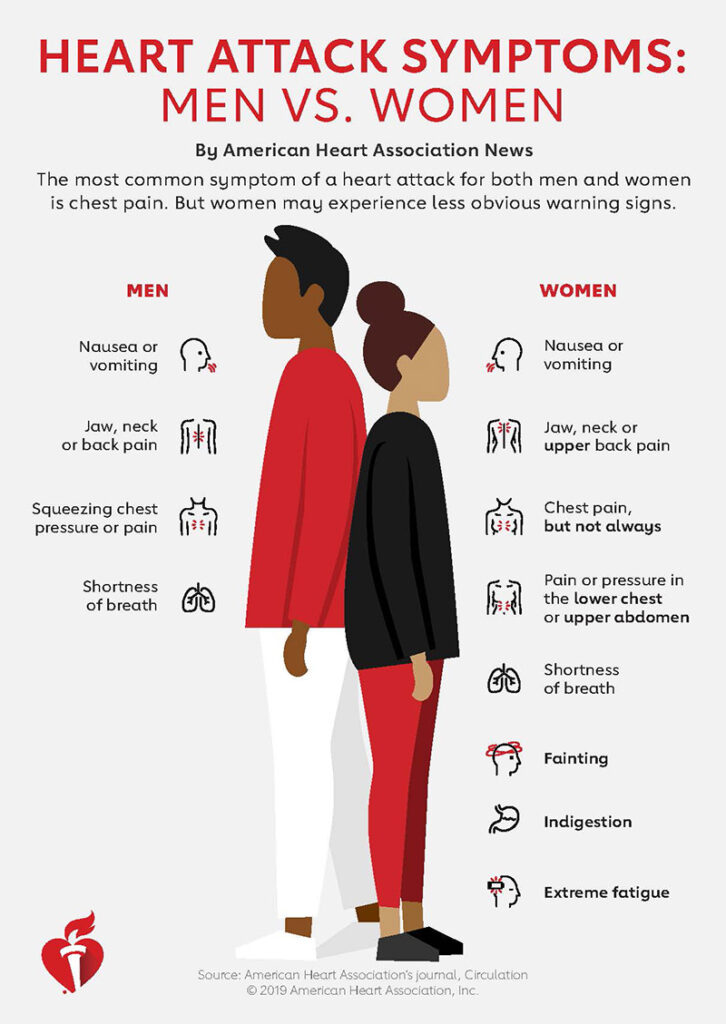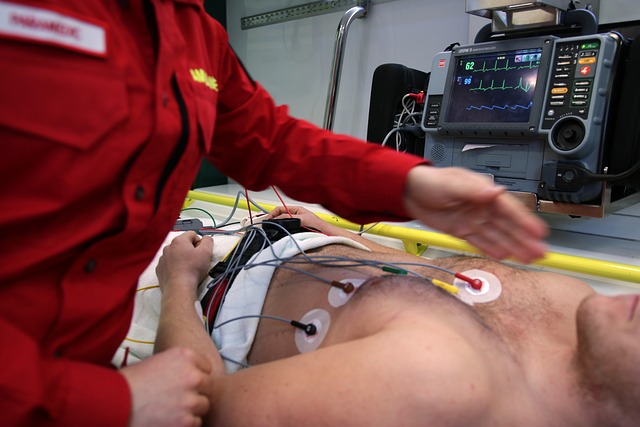Subtle is an adjective used especially to denote a change or distinction, so delicate or precise as to be difficult to analyze or describe.
With heart attacks, men are usually not subtle. Men more often experience the classic chest pain, shortness of breath, and dizziness. They frequently describe the feeling of, “an elephant sitting on their chests.”
Women? Not so much.
Check out the difference in heart attack symptoms between the sexes.
You can see in everyday life how women’s symptoms could go unrecognized. Just last week I was feeling:
Tired? Absolutely! Who wouldn’t be after the fun-filled week I had been having with extra activities outdoors – (closed those exercise rings, buddy!), cooking extra yummy food for gatherings, visiting with family, Graduation party, Father’s Day cook out, and writing for my books.
Indigestion? I might get heartburn once every week – especially with spicy foods. Nothing unusual.
Extreme fatigue? I had said to our company I was exhausted before retiring that night – especially when I just learned we’d be getting up extra early to take them to the airport, and we were slated to keep going on down the road to visit more family.
Stress on board? Oh yes, especially since I had just learned I would not be able to push the publication date of my Caregiver Emotions book to any day later than September 1st.
But climbing into bed did not generate that ahhh feeling. Nope. That area of … pain? … just under my left shoulder blade would not go away.
Hmmm. Had I pulled a muscle? Not that I could recall. Those baking dishes had been heavy …
No other symptoms. Things didn’t get worse, and I was able to finally get comfortable and sleep a couple hours later to awaken pain free in the morning.
Hmmm. That had been a new place for me to feel heart-related discomfort. I was still pretty tired and now I was torn about what to do.
Can you sense the indecision in evaluating all of these subtleties?
There’s one hard and fast rule I always taught my students and have always tried to follow for myself:
PEOPLE WHO MIGHT BE HAVING HEART ISSUES DO NOT HAVE A BRAIN TO MAKE GOOD DECISIONS.
Do not listen to a possible heart attack victim about not going to the hospital – they really do not have the ability – or medical degree or diagnostic equipment – to make that choice.
If others say you should get checked out, then get checked out.
So, my schedule that morning got changed, and I got checked out.
EKG was good. Blood work was done to verify there were no bad markers and no blood clots. Chest x-ray was normal.
No heart attack.
Would I go to the ER again?
Absolutely!
I also will manage my personal commitments better. The Emotions book will be published just fine a little earlier than I had hoped. It’s all good.
So, bottom line – learn the subtleties of heart attack symptoms and don’t hesitate to get checked out. The best treatment is prevention, and an excellent summary can be found here: HEART ATTACK PREVENTION.
Share this post with someone you love using the options under the MORE button below.
In health –
Deidre











